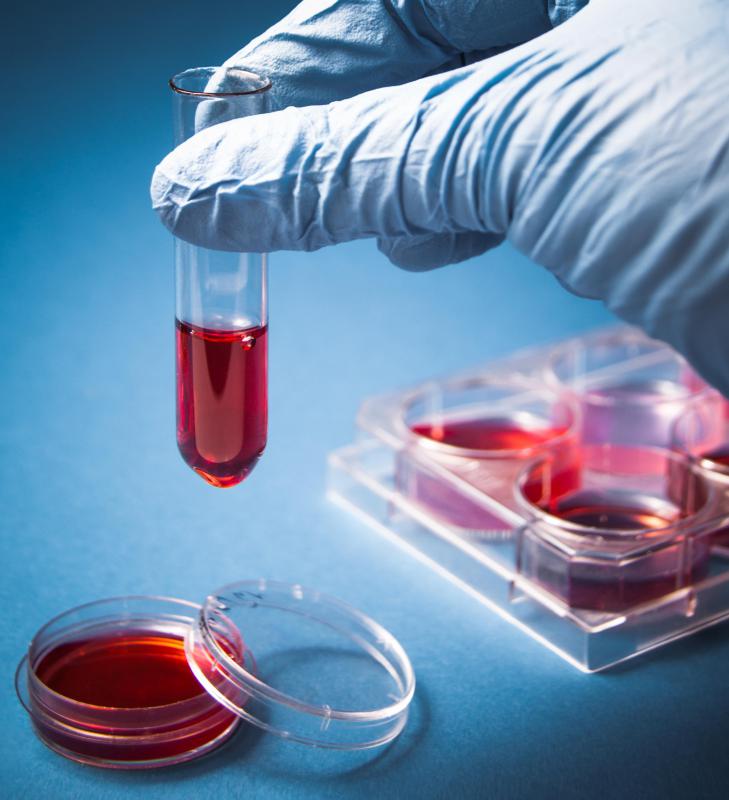At PracticalAdultInsights, we're committed to delivering accurate, trustworthy information. Our expert-authored content is rigorously fact-checked and sourced from credible authorities. Discover how we uphold the highest standards in providing you with reliable knowledge.
What Skills Are Needed by a Forensic Toxicologist?
Many skills are needed in order for a person to become a forensic toxicologist, from expertise in chemistry and biology to computer science. Perhaps none of the skills required to become a forensic toxicologist are as invaluable as communication skills. Other skills, such as leadership and team building, are also very important for anyone wishing to become a forensic toxicologist. Math, public speaking and scientific writing skills are also required for forensic toxicologists, and these skills will be used frequently when preparing results, determining causation of death and eliminating suspects.
A forensic toxicologist examines the effects of chemicals on living organisms and is commonly employed to discover evidence and detail reasons for death and details of illnesses in criminal investigations. This position is biologically-oriented and requires an extensive background in chemistry and biology, as well as an investigatory background as a research assistant. Communication skills are imperative to forensic toxicologists who will be working with several agencies at the same time when attempting to decipher evidence and arrange sample testing. Depending on the location where the forensic toxicologist works, the study of a foreign language may also prove to be a vital skill for a forensic worker to possess.

As a member of an investigatory team, the toxicologist is often in charge of collecting evidence and examining potential crime scenes. This requires the toxicologist to possess leadership skills as well as the needed confidence to oversee an investigation. Appointing other investigators to examine potential areas of evidence and making determinations of which way the investigation will proceed are responsibilities of a lead investigator. Team building is a very important skill for any investigator to posses. This is especially true when working with members of several different and often competing jurisdictions on a single crime scene.

Once the biological and chemical evaluations have taken place, many investigations come down to the math skills of the forensic toxicologist. Using elaborate computations and calculations of body weight and the effect of a certain chemicals is all, the results are deduced through math skills. These mathematical calculations can commonly offer not only a time frame of the ingestion of the chemical, but the time it took to kill or injure the body once ingested. Public speaking skills are often used when presenting the findings of a given case, and writing skills are utilized when creating reports to substantiate the findings and when submitting the results of the findings into a permanent file.
AS FEATURED ON:
AS FEATURED ON:













Discuss this Article
Post your comments